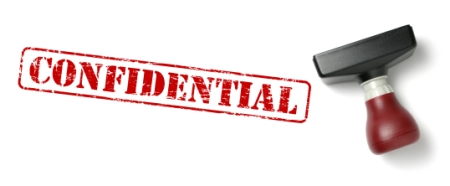Web 2.0 marketing is a highly effective way for lawyers to promote their services to prospective clients. Web 2.0 marketing is leveraging collaborative programs hosted over the Internet, such as social networking sites or Wikis, to provide content highlighting an attorney’s services. This form of marketing could also result in disaster if used incorrectly.
Client Confidences: The Work Product Doctrine and the Attorney Client Privilege
 The sailor in me remembers Hickman v Taylor 329 U.S. 495 (U.S. 1947) because it had a tug boat that sank. The lawyer in me remembers it for the Work Product Doctrine.
The sailor in me remembers Hickman v Taylor 329 U.S. 495 (U.S. 1947) because it had a tug boat that sank. The lawyer in me remembers it for the Work Product Doctrine.
For those not familiar with the Work Product Doctrine, the Doctrine protects documents prepared in anticipation of litigation from discovery, including mental impressions, conclusions, opinions, or a lawyer’s legal theories. Chemtech Royalty Assocs., L.P. v. United States, 2009 U.S. Dist. LEXIS 27696 (M.D. La. Mar. 30, 2009). The Work Product Doctrine is codified by Federal Rule of Civil Procedure 26(b)(3). The Doctrine covers material prepared by a party and a party’s representative, which includes lawyers, consultants or agents. In re CV Therapeutics, Inc. Sec. Litig., 2006 U.S. Dist. LEXIS 41568 (N.D. Cal. June 16, 2006), citing FRCP 26(b)(3).
 The Attorney Client Privilege is a different concept. The Attorney Client Privilege protects “confidential disclosures made by a client to an attorney in order to obtain legal advice, as well as an attorney’s advice in response to such disclosures.” In re CV Therapeutics, Inc. Sec. Litig., 2006 U.S. Dist. LEXIS 41568 (N.D. Cal. June 16, 2006), (citations omitted). Additionally, the privilege applies “only [to] those disclosures — necessary to obtain informed legal advice — which might not have been made absent the privilege.” Id.
The Attorney Client Privilege is a different concept. The Attorney Client Privilege protects “confidential disclosures made by a client to an attorney in order to obtain legal advice, as well as an attorney’s advice in response to such disclosures.” In re CV Therapeutics, Inc. Sec. Litig., 2006 U.S. Dist. LEXIS 41568 (N.D. Cal. June 16, 2006), (citations omitted). Additionally, the privilege applies “only [to] those disclosures — necessary to obtain informed legal advice — which might not have been made absent the privilege.” Id.
California law also requires a lawyer to, “…maintain inviolate the confidence, and at every peril to himself or herself to preserve the secrets, of his or her client.” Cal Bus & Prof Code § 6068
Additionally, attorneys should realize they are responsible for their staff, consultants, non-lawyers, and others also using technology. ABA Model Rule of Professional Conduct, Rule 5.1, Rule 5.2 and Rule 5.3 outline these responsibilities.
Enter Web 2.0 Marketing
There is the potential for disclosure of information protected by both the Work Product Doctrine and the Attorney Client Privilege on social networking sites such as Twitter or Facebook. These services are popular Web 2.0 sites where users can create public profiles, invite other users to follow their daily updates, micro-blogging and other information sharing. It does not take much to imagine someone new to Web 2.0 marketing disclosing too much information to their “friends” or “followers.”
Here is how the risk of disclosure is possible: a Facebook user posts a status message they deem harmless, such as “I just landed ‘Company A’ as a client and have a bunch of back-up tapes to restore.”
Does this disclose any mental impressions or strategy about the case? Probably not, but it is flirting with disclosure. Moreover, Company A would probably not be thrilled with their lawyer announcing their actions in a lawsuit to 300 “friends.”
After reviewing data from imaged hard drives, the same individual posts the status message, “Wow, they really blew preserving their emails.”
If the client is somehow identifiable, there is a problem, because a mental impression of the client’s ESI is being disclosed. While the “friends” are probably in no way related to anyone in a lawsuit, disclosing a client confidence to one person is one too many.
This Does Not Mean Don’t Market!
This is only a call to action for common sense. Lawyers, consultants and their agents should exercise reasonable care in promoting their services. A status message of “Working on a Summary Judgment Motion” or “Preparing for the CMC” or “I settled the case!” is not disclosing any legal theory or confidence. Moreover, using Facebook with the JDSupa application to show published documents can be very effective marketing. However, saying a client name, plus a specific argument or confidence in a status message, might put a tech savvy lawyer in hot water.
Web 2.0 empowers lawyers to promote their services and demonstrate their knowledge in ways few people could imagine when Silicon Valley engineers were teenagers building computers in the 1970s. Lawyers marketing their services on Facebook, Twitter and other social networking sites should exercise reasonable care to protect client confidences. While this may seem like stating the obvious, the potential for someone saying too much in a status message is very real.

Of course there’s no end to the mindless (or downright dumb) things a lawyer might do, but I think the risk of a lawyer disclosing confidential information through a FB or Twitter status update is pretty low. If lawyers learn to be discreet in all contexts about what they say about the cases they work on, then they would not have to pay any special additional attention to what they write on FB or Twitter. It’s the message, not the medium.
It is important to note that the attorney-client privilege only applies in a situation of compelled disclosure. Therefore, it seems the biggest risk with comments on social media sites is a violation of the ethical duty of confidentiality. While I have not done research on the topic, it seems that the first example would be a violation of the attorney’s duty to Company A, at least under Model Rule 1.6. What I don’t know and I would be curious to hear about is how secretive the message must be. What if the lawyer doesn’t say “Joe Smith” but gives information from which someone could identify the client? Does that still violate the duty?